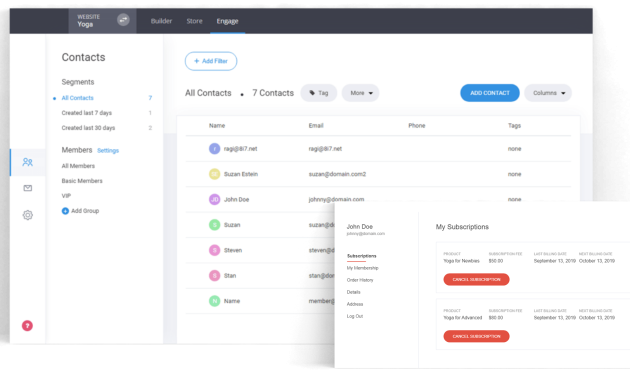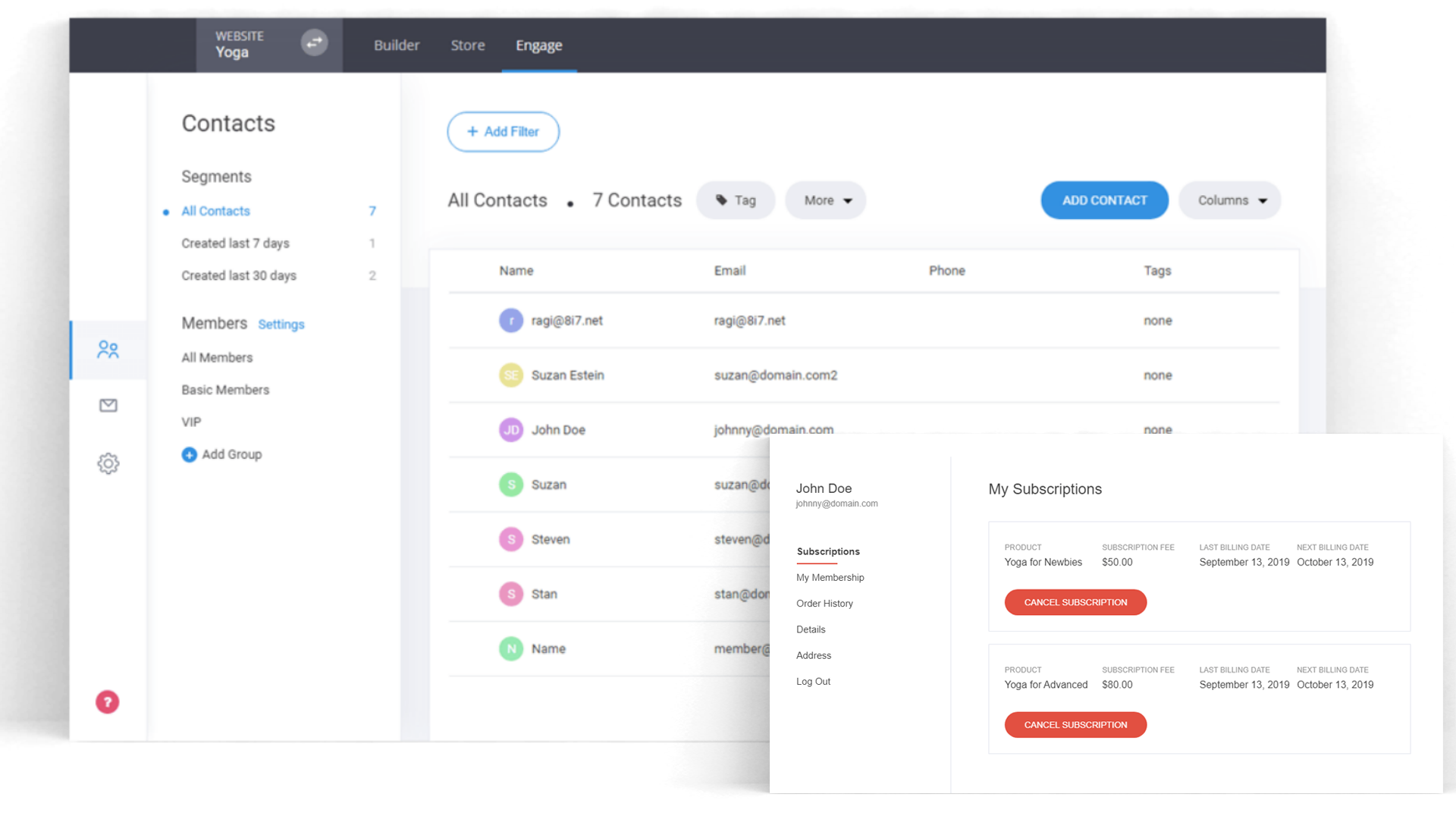
Beginner’s Guide to Customize Engagement for Businesses Through CRM
In today’s hyper-competitive business landscape, building and maintaining strong customer relationships is paramount. Businesses are constantly seeking ways to understand their customers better, personalize their interactions, and foster loyalty. One of the most effective tools for achieving these goals is a Customer Relationship Management (CRM) system. This beginner’s guide provides a comprehensive overview of how businesses can leverage CRM to customize engagement and drive success.
The core principle behind effective CRM is the ability to collect, organize, and analyze customer data. This data then informs personalized interactions, leading to improved customer satisfaction and ultimately, increased revenue. By understanding how to use CRM effectively, businesses of all sizes can significantly enhance their customer engagement strategies.
Understanding the Fundamentals of CRM
A CRM system is, at its heart, a software solution designed to manage and analyze customer interactions and data throughout the customer lifecycle. It encompasses a wide range of functionalities, including contact management, sales automation, marketing automation, and customer service management. By consolidating all customer-related information in a single, accessible platform, CRM systems provide a 360-degree view of each customer.
The benefits of a robust CRM system are numerous. It enables businesses to:
- Improve customer satisfaction.
- Increase sales effectiveness.
- Enhance marketing campaign performance.
- Streamline customer service operations.
- Gain valuable insights into customer behavior.
The core of a CRM system lies in its ability to capture and organize data. This data includes contact information, purchase history, communication logs, and any other relevant interactions a customer has with the business. This organized data becomes the foundation for personalized engagement.
Choosing the Right CRM for Your Business
Selecting the right CRM system is crucial for its successful implementation and adoption. The market offers a vast array of CRM solutions, each with its own set of features, pricing models, and target audiences. Businesses should carefully evaluate their specific needs and requirements before making a decision.
Consider the following factors when choosing a CRM:
- Business Size: Small businesses may benefit from simpler, more affordable solutions, while larger enterprises often require more complex and scalable systems.
- Industry: Some CRM systems are specifically designed for certain industries, offering tailored features and functionalities.
- Budget: CRM systems range in price, from free or low-cost options to enterprise-level solutions with significant upfront investments.
- Features: Identify the essential features your business needs, such as sales automation, marketing automation, or customer service management.
- Integration: Ensure the CRM system integrates seamlessly with your existing software and tools.
- Scalability: Choose a CRM that can grow with your business and accommodate future needs.
Popular CRM platforms include Salesforce, HubSpot, Zoho CRM, Microsoft Dynamics 365, and Pipedrive. Each of these offers different strengths and caters to different business models. Researching and comparing these options is essential.
Customizing Engagement Strategies with CRM
Once a CRM system is in place, the real work of customizing customer engagement begins. This involves leveraging the data within the CRM to tailor interactions and personalize the customer experience.
Here’s how to customize engagement:
- Segmentation: Divide your customer base into segments based on demographics, behavior, purchase history, or other relevant criteria. This allows you to tailor your messaging and offers to specific groups.
- Personalization: Use customer data to personalize communications, such as email marketing campaigns, website content, and product recommendations.
- Targeted Marketing: Develop highly targeted marketing campaigns based on customer segments and preferences. This increases the likelihood of engagement and conversion.
- Automated Workflows: Set up automated workflows to trigger specific actions based on customer behavior, such as sending welcome emails, following up on leads, or providing customer support.
- Lead Scoring: Use lead scoring to prioritize and nurture leads based on their level of engagement and likelihood of conversion.
By focusing on these strategies, businesses can create more meaningful and relevant interactions with their customers, fostering stronger relationships and driving sales.
Leveraging CRM for Sales Automation
CRM systems are powerful tools for streamlining and automating the sales process. They can automate tasks such as lead generation, lead nurturing, and deal tracking, freeing up sales representatives to focus on closing deals.
Sales automation features in CRM systems include:
- Lead Management: Capture and track leads from various sources, such as website forms, social media, and email campaigns.
- Contact Management: Organize and manage contact information, including communication history and purchase history.
- Opportunity Management: Track sales opportunities, from initial contact to deal closure.
- Sales Forecasting: Generate sales forecasts based on historical data and current opportunities.
- Workflow Automation: Automate repetitive tasks, such as sending follow-up emails and scheduling appointments.
By automating these tasks, CRM systems can improve sales efficiency, increase sales productivity, and ultimately, boost revenue. A well-implemented CRM system is integral to a business’s sales strategy.
Enhancing Customer Service with CRM
CRM systems are also invaluable for enhancing customer service. They provide a centralized platform for managing customer interactions, resolving issues, and providing support.
Customer service features in CRM systems include:
- Case Management: Track and manage customer inquiries, issues, and complaints.
- Knowledge Base: Provide a self-service knowledge base with articles, FAQs, and other resources.
- Live Chat: Offer live chat support to provide instant assistance.
- Ticketing System: Manage customer support tickets and track their resolution.
- Customer Self-Service Portals: Allow customers to access information, submit requests, and track their support tickets.
By providing excellent customer service, businesses can improve customer satisfaction, build loyalty, and reduce customer churn. CRM helps build a more customer-centric business.
Measuring Success and Refining Strategies
Implementing a CRM system and customizing engagement strategies is only the first step. It’s crucial to measure the results and continuously refine your approach to maximize effectiveness. CRM systems provide a wealth of data and analytics that can be used to track key performance indicators (KPIs).
Key metrics to track include:
- Customer Satisfaction: Measure customer satisfaction through surveys, feedback forms, and other methods.
- Customer Retention Rate: Track the percentage of customers who remain with your business over time.
- Customer Acquisition Cost: Calculate the cost of acquiring new customers.
- Conversion Rates: Measure the percentage of leads that convert into customers.
- Sales Revenue: Track sales revenue generated from CRM-driven activities.
By analyzing these metrics, businesses can identify areas for improvement and optimize their CRM strategies. Regular monitoring and analysis are essential for continuous improvement.
The Future of CRM and Customer Engagement
CRM technology continues to evolve, with new features and capabilities constantly emerging. Artificial intelligence (AI) and machine learning (ML) are playing an increasingly important role in CRM, enabling businesses to automate tasks, personalize interactions, and gain deeper insights into customer behavior.
Emerging trends in CRM include:
- AI-powered Chatbots: Provide instant customer support and automate routine tasks.
- Predictive Analytics: Predict customer behavior and identify potential issues.
- Personalized Recommendations: Offer personalized product recommendations based on customer preferences.
- Mobile CRM: Enable sales and service teams to access CRM data and interact with customers on the go.
- Integration with Social Media: Integrate CRM with social media platforms to manage customer interactions and track social media mentions.
Businesses that embrace these emerging technologies will be well-positioned to provide exceptional customer experiences and stay ahead of the competition. The constant evolution of CRM creates new opportunities.
Conclusion: Mastering CRM for Enhanced Engagement
Customizing engagement through CRM is a critical strategy for businesses seeking to thrive in today’s competitive market. By understanding the fundamentals of CRM, choosing the right system, and implementing effective engagement strategies, businesses can build stronger customer relationships, increase sales, and drive sustainable growth.
This beginner’s guide to customize engagement for businesses through CRM offers a starting point. Continuous learning, adaptation, and optimization are key to maximizing the benefits of CRM and achieving long-term success. Businesses should always review their CRM strategy.
By embracing CRM and focusing on the customer experience, businesses can create a loyal customer base. This focus is essential for achieving lasting success. Remember to consistently analyze and improve your engagement strategies.
For further reading, consider these resources: [See also: Related Article Titles]

